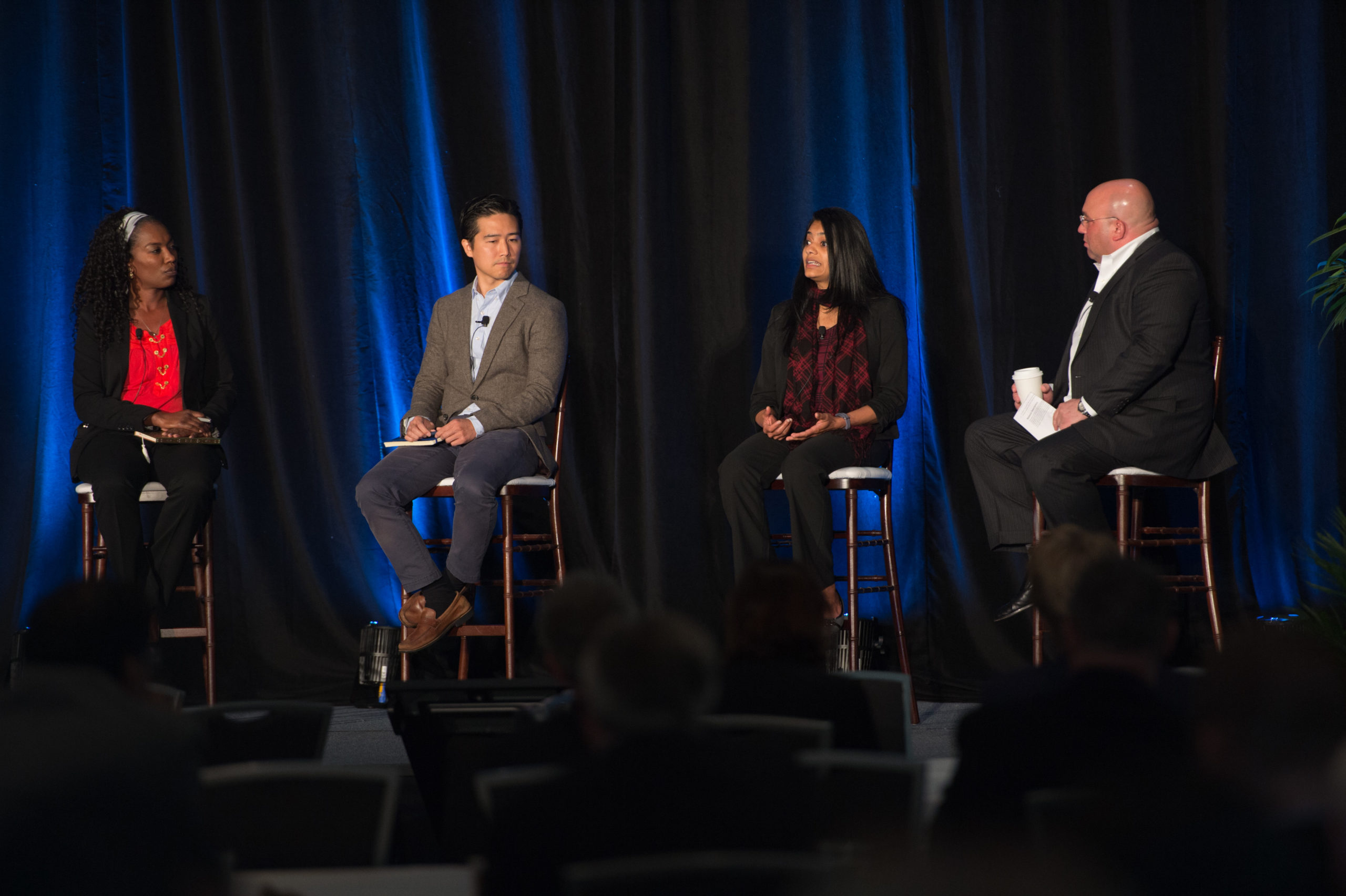January 10, 2018
As cities face ever-changing challenges, civic leaders from across different sectors and industries are finding new ways to take them on. At the recent Meeting of the Minds summit, a group of leaders from local government agencies, corporations, foundations, nonprofits, and academia came together during a lively discussion to share what they’ve learned.
We asked the guests to articulate the single biggest challenge facing American cities over the next 50 years. Though their responses varied, a few tactile solutions surfaced.
- Those who are most impacted by systems changes and failures are those who are most disconnected from the problem-solving process. At the core of any solution should be community engagement and input.
- Creative partnerships open up new possibilities to unlock solutions to complex challenges. And to that end, cross-sector collaborations are crucial for tackling issues like autonomous vehicles and connected cities.
- Cities that are testing new approaches can learn from each other. One example cited was Louisville’s public proclamation that it was a “Compassionate City” in 2011, an initiative that included mentoring programs, community beautification and clean projects, and volunteer opportunities as part of a broader Charter for Compassion International movement. Members of Compassionate Louisville’s Coordinating Circle have since mentored more than 30 other cities interested in joining the Compassionate Cities movement. These cities include Winnipeg, Nashville, San Antonio, St. Louis, and Toledo.
- Collective impact works. A guest highlighted the collective impact that the city of Columbus, Ohio, was able to achieve through a day of giving that had participation from most of its businesses and nonprofits and was organized by the local community foundation. The “Big Give” campaign was widely shared on social media, resulting in millions raised over a 24-hour period. The campaign was also cited as a good example of how a community was able to leverage anchor institutions like libraries, universities and large corporations as part of a coordinated campaign.
- Long-term vision is imperative. One guest noted the importance of identifying catalytic leadership with people that have clear goals and a vision for moving cities forward. Thinking long-term, is crucial, said FUSE CEO James Weinberg. Global urbanization almost demands that cities look 50 years into the future to plan for an influx of new residents. “If we cannot make cities work, we will not have a civil society 50 years from now. It’s up to us to make it work.”
Read more about the FUSE panel,
The Challenges and Opportunities of Driving Innovative Change.
